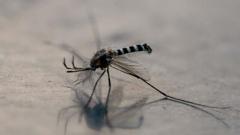In a dramatic move, U.S. Health Secretary Robert F. Kennedy Jr. has removed all members from the Advisory Committee on Immunization Practices, citing conflicts of interest as a barrier to vaccine confidence. Critics warn this decision could undermine public health efforts amidst ongoing vaccination concerns.
RFK Jr. Cleans House: Overhauls US Vaccine Committee

RFK Jr. Cleans House: Overhauls US Vaccine Committee
Health Secretary Robert F. Kennedy Jr. dismisses the entire Advisory Committee on Immunization Practices in a bid to restore public trust in vaccines.
In a controversial decision, U.S. Health and Human Services Secretary Robert F. Kennedy Jr. has dismissed all 17 members of the Advisory Committee on Immunization Practices (ACIP), the body responsible for making official vaccine recommendations. This sweeping action was announced through an editorial in the Wall Street Journal, where Kennedy expressed concerns about potential conflicts of interest eroding public trust in vaccinations.
Kennedy, a well-known skeptic of vaccine safety, argued that a re-evaluation of the committee's members was necessary to ensure that the public receives "the safest vaccines possible." During his Senate confirmation hearings, he assured lawmakers that he had no plans to alter the committee, a commitment that has raised concerns among some legislators following his recent decision.
The members he ousted included eight appointees placed by the previous administration, with notable ties to major medical institutions. Kennedy stated that maintaining the original committee would allow for the continued dominance of industry influences, which he claims has contributed to a growing distrust among the public.
He stressed in his editorial that the pervasive issue of conflicts of interest persists, citing historic examples, and accused health authorities and pharmaceutical companies of fostering a "crisis of public trust."
Despite the intention behind the overhaul, prominent health professionals, including Dr. Bruce Scott, president of the American Medical Association, have criticized the move as undermining a transparent process critical to preventing vaccine-preventable illnesses. With the ACIP convening soon to discuss upcoming vaccine recommendations, immediate questions remain regarding who will fill the vacated positions and how this shake-up will affect public health policies.
Bill Cassidy, a Republican senator and physician, expressed concern over the potential replacement members. He indicated that Kennedy’s approach might favor individuals lacking the necessary expertise, which risks further complicating an already sensitive public health landscape.
As public health officials brace for impacts from the recent changes, the focus remains on maintaining vaccination rates amid ongoing health crises. Transition plans for the newly shaped committee will be closely watched heading into the forthcoming ACIP meeting where pivotal health recommendations are on the agenda.




















